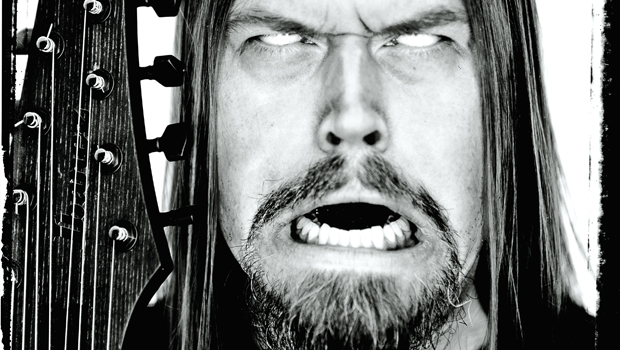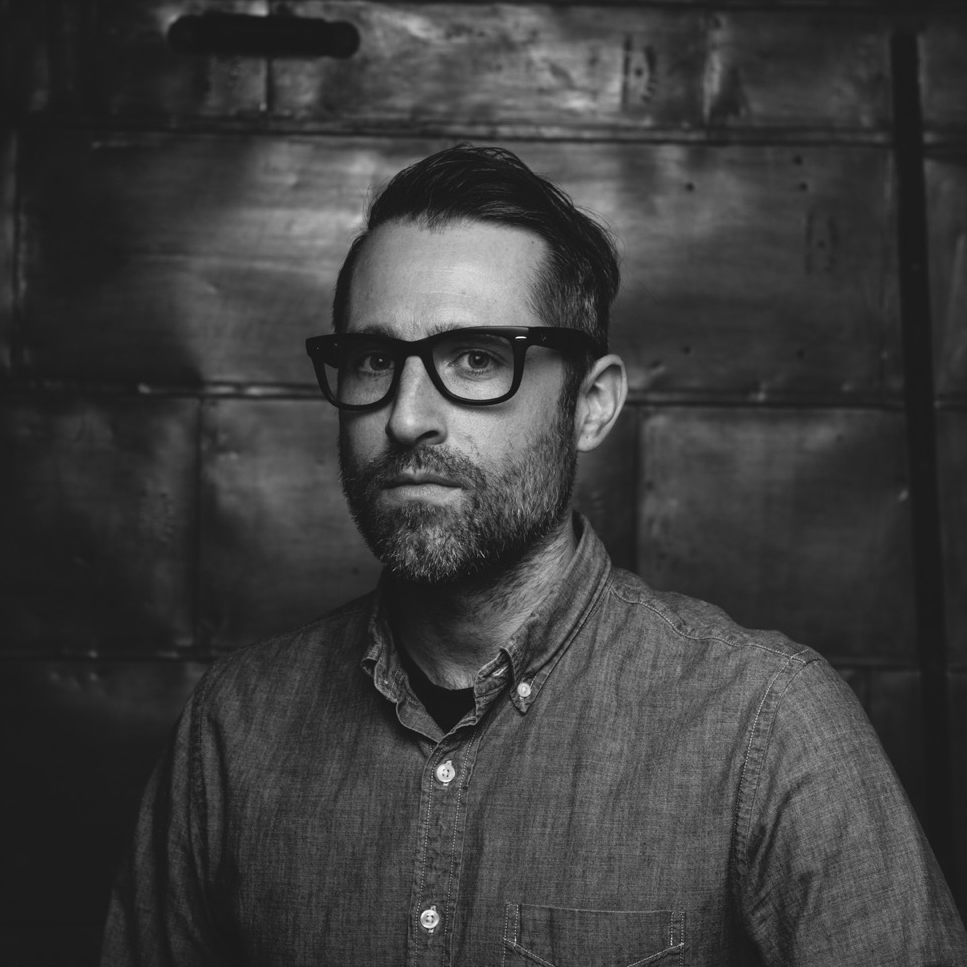Interview: Meshuggah Guitarist Fredrik Thordendal Answers Reader Questions

He is Meshuggah’s lead guitarist and an inspiration to the ax-wielding trailblazers behind the prog-metal djent movement. But what Guitar World readers really want to know is…
I heard Meshuggah have been jamming on new ideas and might be releasing an album in 2011. Is there any truth to that? Do you have a title or any new gear you’re using?
—Ronnie “Good” Thyme
Yes, we are working on a new album and have been for a long time. I’m so excited about this one. We’ve always tried to change how we write songs to keep it exciting, but on recent albums we’ve also been moving further away from working together as a band. On this album, though, everyone is working together. Every day that we’re in the studio, we’ll play whatever song we’re working on, record a demo version of it to analyze at home, and then come back the next day, talk about it and try to make it better. I think because of this, it’s going to be our best album yet.
We don’t have a title yet, but when it comes to new gear, this one is going to be special, to say the least. I’m working with DAR Amplification to make this ridiculously powerful guitar amp. It’s got 100 watts of true Class A power. The tubes are from Russian MiG 25 fighter planes; they’re designed to survive a nuclear blast and keep the plane flying. It will be the world’s most advanced modern tube amp. But most importantly, it’s designed from beginning to end for the ultimate metal tone, and it sounds awesome. Can’t wait for you to experience it!
Are you familiar with the current “djent” movement, with bands like Periphery, Animals as Leaders and TesseracT? All those bands credit Meshuggah as the biggest influence to their style.
—James
I have heard of djent and all these bands. Yes, I’m definitely into their sound, and it makes me proud. I think it’s great that we can influence anyone in any kind of way to do something creative. To me, that’s what it’s all about. Some people listen to our music when they work out, spar, run, walk, et cetera. Some pick up the guitar and add one of our tools to theirs. It’s all the same, and it’s all great.
You’ve always been able to create riffs in odd meters that are still brutal and groove heavy. Is there a certain way you count, or a certain pulse you feel, to reach that balance of technical playing and power?
—Joe Dopke
Actually, we rarely play riffs in odd meters. I understand why people hear odd meters in our songs, because we group our notes in different ways. But just about all of them are 4/4.
Get The Pick Newsletter
All the latest guitar news, interviews, lessons, reviews, deals and more, direct to your inbox!
What is your current guitar and amp setup, and how do you EQ it to get that “Meshuggah” tone?
—Bob Thompson
I’m guessing we are talking about the rhythm sound here. For a few years now, I’ve been using Fractal Audio’s Axe-Fx Ultra. There are 70 amps included, and I use more than one. But the ones I like the most now are Recto New, which is based on the Mesa/Boogie Dual Rectifier amps; Das Metall, which is based on the Diezel VH4; and USA IIC+ 2, which is based on the Mesa/Boogie Mark II. I also still use Line 6’s Vetta II in the rehearsal studio. As far as EQ, it’s impossible to say what I do, because it’s different on every amp. But in general, I use a lot of drive and bass, a little mid, and some treble and presence.
Can you explain the idea behind your 33 MIDI breath controller that Johan Haake [brother of Meshuggah drummer Tomas] built for you? Will it ever be for sale to the public?
—Graham Gilmore
When I came up with the idea of a MIDI breath controller, I was mainly interested in using it as a dynamics controller. I wanted to start a note at a lower volume and then bring it up, like a saxophonist does. But I’ve since found that is more or less impossible with a guitar. Since the controller didn’t produce the sound I was after, I had to find other ways of using it. It turned out that the only thing that sounded cool was when I blew every single note with it, which generated this weird staccato sound. The first breath controller we made—the one I used on “Future Breed Machine” and “Sublevels” from Destroy Erase Improve—could only control the volume. So Johan Haake and I tried all kinds of things to get closer to what I originally wanted, like adding control over frequencies and distortion. I am really pleased with how the “Missing Time” solo turned out from Sol Niger Within Version 3.33 [the remix CD of the debut album from his side project Fredrik Thordendal’s Special Defects]. But I never thought we got close enough, so I sort of gave up on it. A couple of years ago it was for sale to the public, but not any more.
The second Special Defects album has been under way for a while. How far along are you in the process, and will it be out soon?
—Sebastian Linnet
It’s actually been messing with my head for years now. But since I’ve been touring a lot on Meshuggah’s latest release, obZen, together with becoming a father and practicing drums during the same period, I haven’t really found the time to get the project going. I recorded some incredible drum tracks with Morgan Ågren [of Swedish prog-rock band Kaipa] and [Soilwork’s] Dirk Verbeuren last year, but I haven’t really written any songs yet. This is a project that I will work on for a longer time, with no rush whatsoever, to make it the best I possibly can. I’m looking forward to making it because I think it will sound so different from anything I’ve ever heard before. But right now, me and the Meshuggeners are focusing everything we’ve got on the new Meshuggah album. It’s going to crush.
You’re a fan of ultimate fighting. What was your favorite fight from this year and why? I loved [Cain] Velasquez’s badass knockout of [Antonio Rodrigo] Nogueira!
—Jeff Thompson
Yeah, that one was awesome. For that fight, I was actually in Sydney with [Meshuggah bassist] Dick [Lövgren] and [vocalist] Jens [Kidman], so I got to see it live. But I have to say my favorite bout was Velasquez’s win over [Brock] Lesnar in UFC 121.
What are your top-three favorite things to listen to right now, and why?
—Damian Murdoch
I just found out about [jazz fusion guitarist] Wayne Krantz and his amazing work with Keith Carlock and Tim Lefebvre. When I started listening to their stuff, I felt like I was 15 years old and I wanted to start exploring music all over again. These guys are the most inspiring band I’ve heard in a very long time. I also can’t stop listening to Massive Attack’s 100th Window because it takes me to this other place. I’ve also been listening to Cult of Luna for a while now. They’re a very good band: different, raw and interesting.
A lot of your soloing has a free-form jazz style to it. Is it based on feel, or have you had formal training? Do you map out your solos ahead of time?
—Jason Molstad
My dad always listened to jazz, and I guess that influenced me to learn about improvisation. An improvised solo sounds so much better than a written one. For me, there’s not much thinking going on at all, only a reaction to what I’m being told from the inside.
And no, I have not had any formal training. When I record my leads, they are usually based on feel and totally ignorant to all laws of music theory. This, of course, is because I just play whatever comes out. There are no rules. But on certain songs, I do have to figure out what scales I need to use to follow chord changes. Since I’m not very good with all the scales, I sometimes have to write parts down and plan things ahead. I usually improvise the first part, then insert the written part and continue to improvise until the end of the solo. It’s a very confusing way to do it, but I do whatever it takes to make it sound like I know what I’m doing.
Photo Credit: Jimmy Hubbard
Brad is a Brooklyn-based writer, editor and video producer. He is the former content director of Revolver magazine and executive editor of Guitar World. His work has appeared in Vice, Guitar Aficionado, Inked and more. He’s also a die-hard Les Paul player who wishes he never sold his 1987 Marshall Silver Jubilee half stack.
“I suppose I felt that I deserved it for the amount of seriousness that I’d put into it. My head was huge!” “Clapton is God” graffiti made him a guitar legend when he was barely 20 – he says he was far from uncomfortable with the adulation at the time
“I was in a frenzy about it being trapped and burnt up. I knew I'd never be able to replace it”: After being pulled from the wreckage of a car crash, John Sykes ran back to his burning vehicle to save his beloved '76 Les Paul










